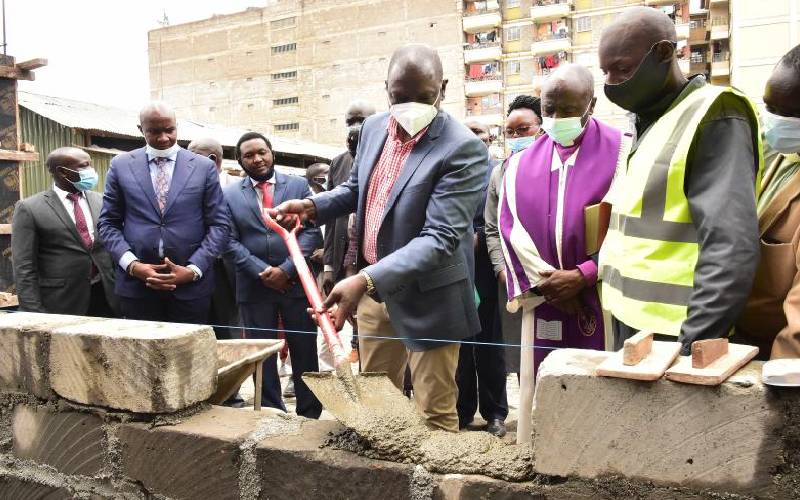×
The Standard e-Paper
Kenya’s Boldest Voice

Deputy President William Ruto lays the foundation stone for the construction of African Inland Church Pipeline Academy in Nairobi on Sunday. [DPPS]
The battle lines in the push for constitutional reforms have been drawn, with Deputy President William Ruto setting the stage for a 'No' campaign that could be his trump card for 2022 presidential campaigns.